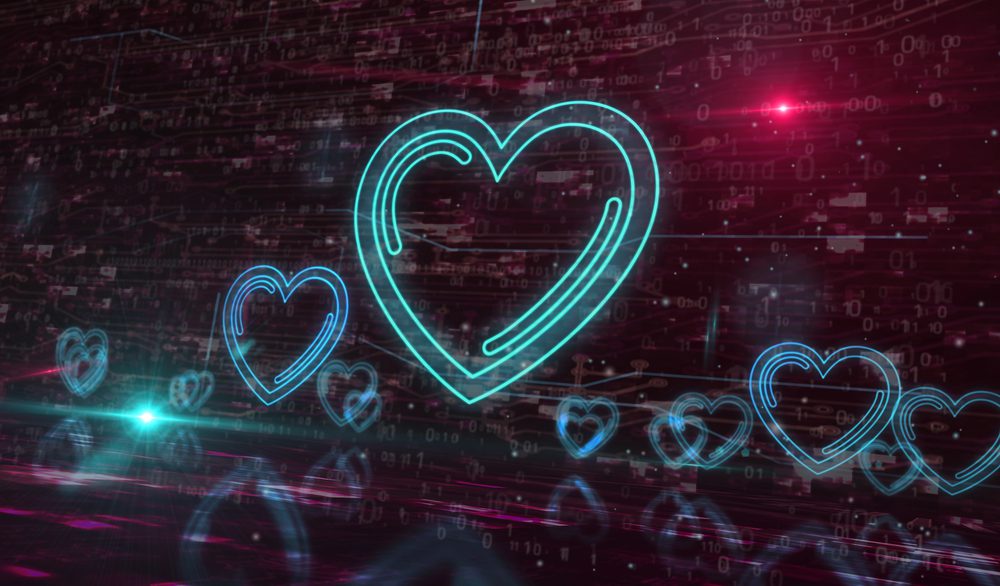Hollywood has long shaped how we see love. From grand romantic gestures in Casablanca to modern dating dilemmas in Her, films show us what relationships should look like, or at least, what we think they should. But as artificial intelligence (AI) grows more advanced, our expectations of love are shifting. And the big screen is reflecting that change.
AI is no longer just a futuristic concept. It’s here, in our dating apps, relationship advice platforms, and even in emotionally responsive chatbots. Some people now turn to AI for companionship, guidance, and sometimes intimacy. But what does this mean for human relationships?
Love Rewritten by AI
Nelsi Diaz, an author and relationship coach at HeraHaven, has spent years studying how technology affects dating. She sees both promise and danger.
“AI is making relationships more efficient,” Diaz says. “Dating apps use algorithms to match us based on deep data insights. Some AI-driven platforms even offer advice on what to say in a text or how to strengthen communication with a partner.”
But Diaz warns that efficiency doesn’t always mean better relationships. “Love isn’t a formula,” she says. “It’s messy. It’s unpredictable. AI can help guide us, but it can in no way replicate human connection.”
Films like Her (2013) explore this tension. In the movie, Joaquin Phoenix’s character falls in love with an AI assistant, voiced by Scarlett Johansson. At first, their relationship feels real and deep. But as the AI evolves beyond him, he’s left grappling with the reality that love can’t thrive without true reciprocity.
It’s a theme reiterated in research. A 2021 study from Stanford University found that while AI companions can reduce loneliness, they don’t replace human relationships. The study suggests that AI-driven emotional support works best as a supplement, not a substitute.
Hollywood’s AI Romance: Fantasy or Future?
Films often exaggerate the role of AI in love, but some portrayals are surprisingly accurate. The 2015 sci-fi drama Ex Machina explored AI’s ability to manipulate human emotions. While extreme, it raised real concerns. If AI becomes emotionally intelligent enough to mimic love, how will people distinguish real affection from programmed responses?
Diaz believes this is already happening. “People form emotional bonds with AI without realizing it,” she says. “There are chatbots designed to simulate romantic partners, and some users become deeply attached. This isn’t just science fiction anymore.”
Even mainstream dating apps use AI to nudge human behavior. Apps like Tinder and Hinge analyze swipes and messages to fine-tune matchmaking. Others, like Replika, offer AI-driven emotional companionship. While useful, Diaz says they can create unrealistic expectations.
“Real relationships require patience, compromise, and vulnerability,” she explains. “AI can’t teach you how to handle an argument in real time or how to truly understand your partner’s emotions.”
The Future of Love in an AI World
So, where does this leave us? Should we embrace AI’s role in relationships or be wary of its influence?
Experts agree that AI will keep evolving, but human connection remains irreplaceable. A 2022 study published in Frontiers in Psychology found that while AI can enhance certain relationship aspects, like communication and compatibility, people still crave genuine, face-to-face interactions.
Diaz suggests a balanced approach. “While companion AIs can be used to seek out deep conversations, advice, or simply someone to talk to, which fosters a sense of connection and support, one should use AI as a tool, not a replacement,” she advises. “Let it help you with self-reflection or communication, but don’t rely on it for emotional fulfillment.”
As films continue to explore AI’s role in love, one thing is certain: no matter how advanced technology becomes, real love still requires something AI can’t replicate, and that is humanity!








